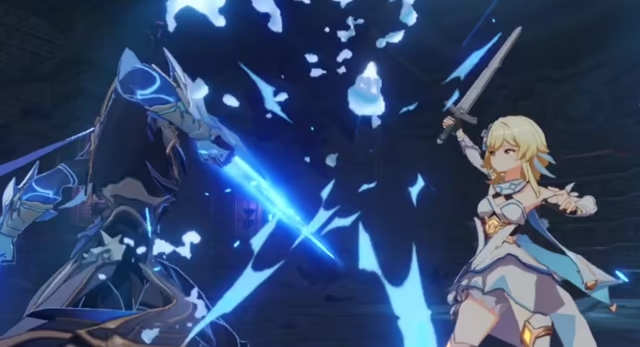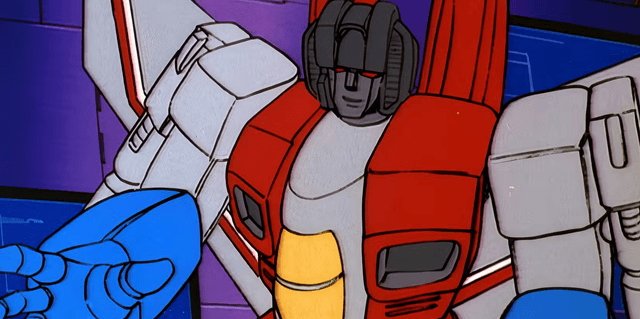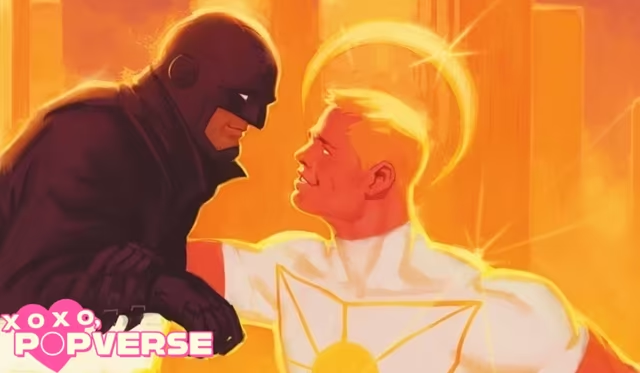If you click on a link and make a purchase we may receive a small commission. Read our editorial policy.
The DC universes across comics, TV, and movies are changing big this year - and once again, the Flash is to thank (or is it blame?)
The Flash is one of the DCU’s greatest heroes but he can never seem to stop interfering with the timeline, no matter what medium he’s running through.

2023 is shaping up to be the biggest ever for the Flash, the DC Universe’s biggest speedster superhero. With a major motion picture starring The Flash slated to hit the big screen this June, the character’s long-running television series on The CW coming to a bombastic end, and 'One-Minute War' as DC’s most kinetic comic book storyline of the year so far, Barry Allen has never been more prominent in the entertainment mainstream. However, while the Scarlet Speedster is certainly a staple in the DCU and a significant source for good, Barry just can’t seem to help himself in screwing up the timeline of whatever medium he’s starring in.
Always charging ahead to change history with the best of intentions, Barry has led to the soft reboot of several different iterations of the DCU. This bad habit is called out directly in the miniseries Stargirl: The Lost Children, by Geoff Johns and Todd Nauck, which picks up plot threads from Doomsday Clock and Flashpoint Beyond to explore the current state of the Omniverse, the space-time continuum encompassing DC’s growing number of infinite realities. No matter if it’s the silver screen, television, or the comic book page, Barry’s reckless regard for the timeline has yielded some reality-bending consequences and the Fastest Man Alive has a penchant for diving headfirst into universal disruption.
The birth of the Omniverse

Corky Baxter, one of the Time Hunters who preserve the sanctity of the timeline along with veteran time-traveler Rip Hunter, has the most unique vantage point on the shifting nature of time and space in the DCU. Corky observed Barry traveling back in time to prevent the Reverse-Flash from murdering his mother, resulting in the 2011 crossover event Flashpoint, by Johns and Andy Kubert. Barry’s actions created an alternate version of the DCU but, as Barry moved to undo the damage he had caused to the timeline, the omnipotent Doctor Manhattan altered the timeline further, resulting in a reboot of continuity kicking off the 'New 52' era, before restoring it at the end of the 2018 maxi-series Doomsday Clock by Johns and Gary Frank.
2022’s Flashpoint Beyond, by Johns, Jeremy Adams, Tim Sheridan, Xermanico, and Mikel Janin, explored the fallout from Flashpoint and Doomsday Clock even further. The miniseries established that the laws of space fell under the Omniverse, an overarching state of reality that saw the past, present, and future permutations of the DCU and its infinite number of parallel universes, with Manhattan able to witness them all simultaneous through his cosmic awareness. It is further explained that the laws of time fall within the bounds of Hypertime, a concept introduced by Grant Morrison and Mark Waid that covered the divergent timelines from the main DCU. Corky terms the union of both of these concepts as the Divine Continuum, blaming Barry for creating another fine mess affecting the space-time continuum.
Barry Allen, well-intentioned troublemaker

In a way, it makes sense that Barry would be the one to cause so much meddling on a multiversal scale. It was Barry who discovered the existence of the multiverse in the first place in the landmark 1964 story 'The Flash of Two Worlds' in The Flash #123 by Gardner Fox and Carmine Infantino stumbling across Earth-2, where he met his counterpart Jay Garrick. Barry’s adventures through time and space continued, including starting a family in the 30th century with his wife Iris West, culminating in his heroic sacrifice during 1985’s Crisis on Infinite Earths by Marv Wolfman and George Perez. Barry gave his life to stop the evil Anti-Monitor from consuming all of reality while the supervillain’s defeat resulted in the alternate universes being consolidated into a single DCU — Bary’s death coincided with the end of the multiverse that he discovered.
When Barry was resurrected, in the 2008 crossover event Final Crisis by Morrison, J.G. Jones, Carlos Pacheco, Marco Rudy, and Doug Mahnke, he found that history had been altered. Rather than growing up with both of his loving parents, the timeline was changed to have Barry’s father Henry framed for the murder of Barry’s mother Nora, resulting in a lengthy imprisonment. Barry eventually exposed the Reverse-Flash as the true killer and set out to regain what Eobard Thawne took from him. Barry learned the painful consequence of messing with the timeline firsthand by creating the grim Flashpoint reality, leading to him stopping himself from making the change.
The Flash’s growing reputation for disruption

This mistake has become something of a defining character trait for Barry in multimedia incarnations of the DCU, even beyond the animated feature film adaptation of Flashpoint, Justice League: The Flashpoint Paradox. In the CW’s Arrowverse, Barry presumably learned about the consequences of time-travel in the first season finale, with an alternate timeline version of himself warning him from preventing his mother’s death. By the second finale, however, Barry ditched this precautions to the wind and altered history to stop the Reverse-Flash. The subsequent third season resulted in a twisted version of reality that led Barry to allow Eobard to finish his murderous mission, though the tampering with the timeline led to major consequences even after reality was restored.
One would think that this traumatic episode would cause Barry to swear off time-travel for good but the Scarlet Speedster has run backwards and forwards through time on multiple occasions on The Flash since. This continued tampering resulted in Barry fighting an evil version of himself from an alternate timeline at the end of the third season while Barry would still engage in time-travel across the remainder of the series’ run, as recently as its eighth season, often under the auspices that the ends justified the means, despite witnessing the disastrous fallout altering history could cause.
The long-gestating Flash movie similarly hinges on Barry traveling back in time to prevent his mother’s murder with even more catastrophic consequences because of it. The Super Bowl trailer hints at a resulting reality where General Zod stands triumphant, with no Superman visibly around to oppose him from subjugating Earth. Barry is seen emerging in a different reality stemming from the Tim Burton Batman films starring Michael Keaton as the Caped Crusader once again while Supergirl and an alternate Barry accompany him on his trek through reality to undo his grave mistake.
Barry Allen is the greatest Flash of them all, the one who paid the ultimate price to save all of reality, in addition to his usual acts of heroism as Central City’s defender and as a prominent member of the Justice League. However, recent depictions of Barry seem stuck in a rut of the character trying to change history to prevent his worst personal tragedy, despite being warned of the consequences. The Flash’s tampering with the timeline has become something of a running joke and hopefully one that will be put to bed permanently after The Flash movie takes its own crack at the recurring trope.
Stargirl: The Lost Children #4 is written by Geoff Johns, illustrated by Todd Nauck, colored by Matt Herms, and lettered by Rob Leigh. The story continues in Stargirl: The Lost Children #5, on sale March 21 from DC Comics.
Follow Popverse for upcoming event coverage and news
Find out how we conduct our review by reading our review policy
Let Popverse be your tour guide through the wilderness of pop culture
Sign in and let us help you find your new favorite thing.
















Comments
Want to join the discussion? Please activate your account first.
Visit Reedpop ID if you need to resend the confirmation email.